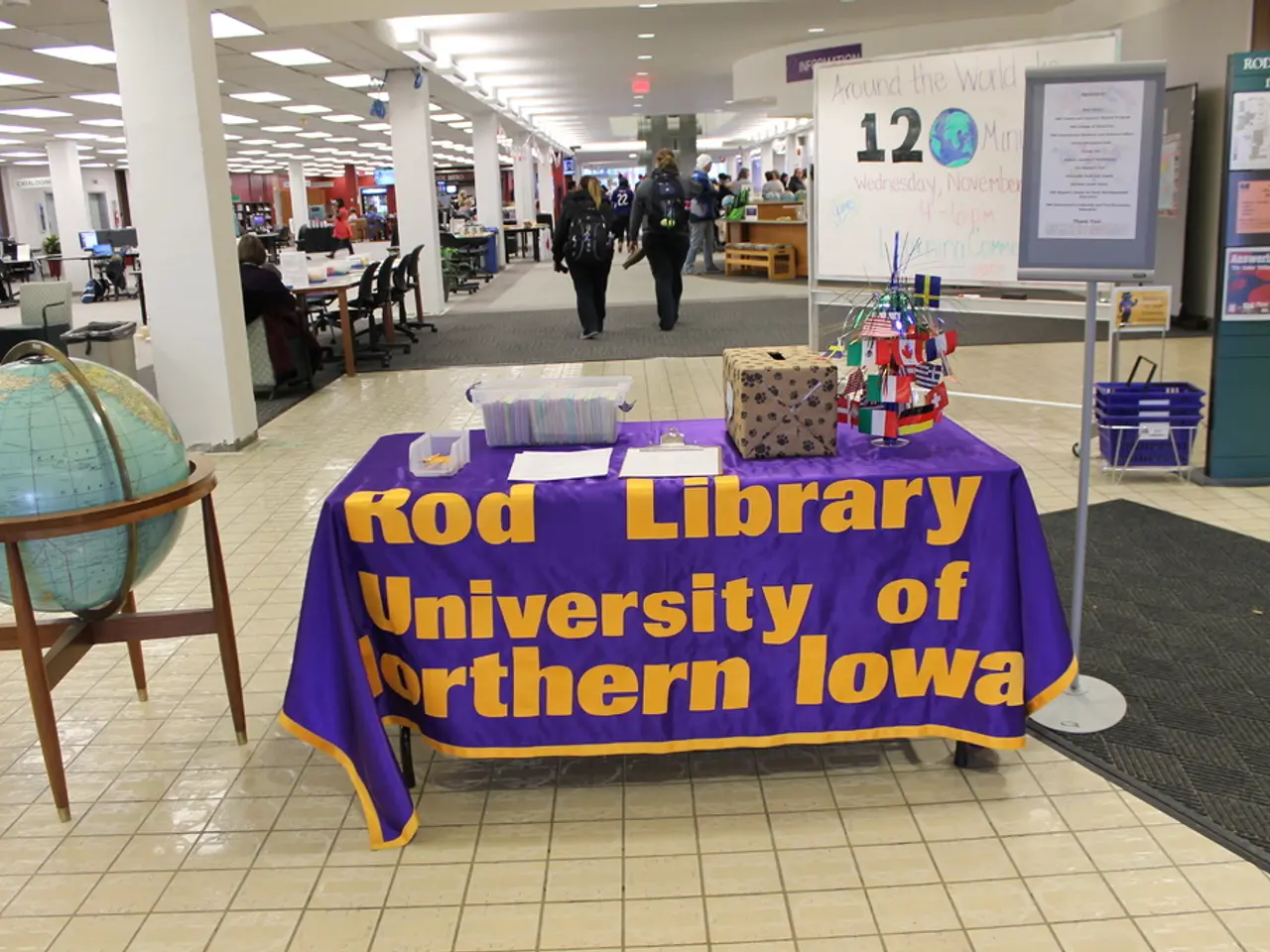Display showcasing European unity, diversity, and cooperation
In the heart of North Rhine-Westphalia, Rhein-Kreis Neuss is demonstrating the significance of the European Union (EU) in regional development, cultural exchange, and economic integration through a unique student exhibition.
The exhibition, which features photographs from students at the BBZ Neuss-Weingartstraße, was officially opened recently, with performances from Johannes Quach, Melanie Rethmann, Carina Romero Soneira, Frank Weber, and Heinz Jürgen Schiffer from the BBZ. The event was marked by the European anthem, emphasising the EU's importance in the context of the district.
District Administrator Hans-Jürgen Petrauschke praised the work done in the district's European schools and emphasised the great democratic achievement that the EU represents. He also stressed the importance of voting in the upcoming European elections on June 9, encouraging visitors to the exhibition to reflect and exercise their voting rights.
The student works on display are a testament to the EU's support for cultural exchange and educational programs, such as the Erasmus+ initiative, which facilitates student mobility and cultural exchange across Europe. These projects enrich educational experiences and foster a sense of European identity, as showcased in the exhibition.
The EU's role in economic integration is also evident in Rhein-Kreis Neuss. By promoting trade and investment among member states, the EU benefits regions like Rhein-Kreis Neuss by connecting local businesses with a broader European market. The district's economic growth and development are thus linked to the EU's success.
Moreover, the EU plays a significant role in setting environmental and energy policies. Initiatives like the hydrogen economy initiative and projects like H2Valley RheinRuhr, which aim to transform the Rhine-Ruhr region into a leading hydrogen economy hub, align with EU goals to reduce greenhouse gas emissions.
Rhein-Kreis Neuss also boasts partnerships with the counties of Mikolów in Poland and Grandola in Portugal, further demonstrating the EU's role in fostering political and economic cooperation among member states. The district's proximity to other major European cities and metropolitan areas enhances its integration into the broader European landscape.
The exhibition is not just a showcase of student talent but also a reflection of Rhein-Kreis Neuss's strong European commitment. The district has had a European coordinator for over three decades, underscoring its dedication to fostering European connections.
In conclusion, this student exhibition provides a comprehensive view of the EU's significance in the context of Rhein-Kreis Neuss and its broader European connections. It showcases the EU's impact on regional development, cultural exchange, and economic integration, inspiring visitors to reflect on the EU's role in their lives and communities.
[1] H2Valley RheinRuhr: https://www.h2valley.de/en/ [2] North Rhine-Westphalia's geographical position: https://www.nrw.de/en/nrw/geography/1018268
- As a young individual, it's essential to recognize the role of the European Union (EU) in lifelong learning and self-development, especially given its contributions to the student exhibition in Rhein-Kreis Neuss.
- The EU's policy and legislation, such as the Erasmus+ initiative, foster learning opportunities through educational programs that promote cultural exchange among its member states.
- District Administrator Hans-Jürgen Petrauschke encourages everyone, especially the younger generation, to exercise their voting rights in the upcoming European elections as a vital part of lifelong learning and engaging with general news about politics and the EU's impact on regions like Rhein-Kreis Neuss.




